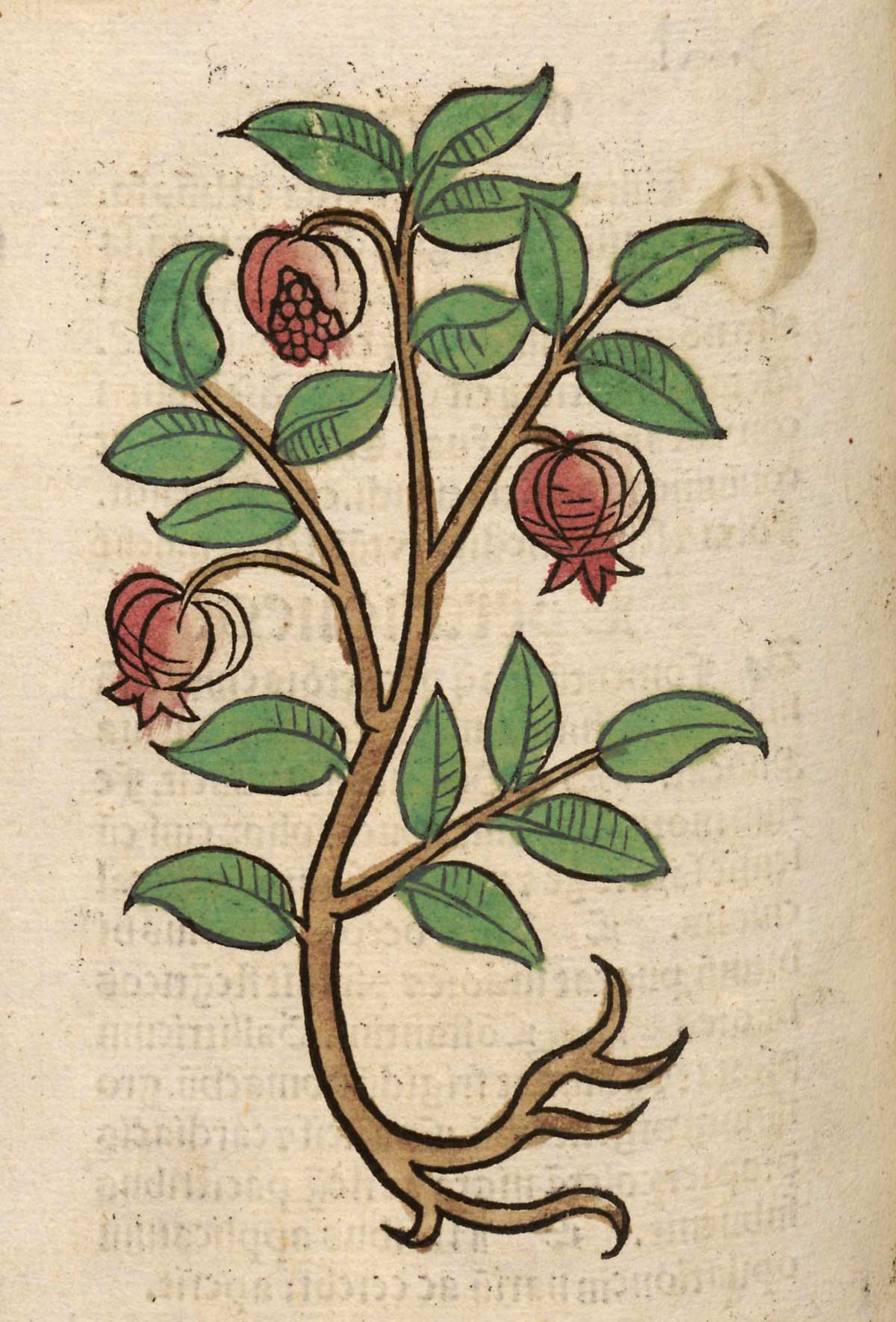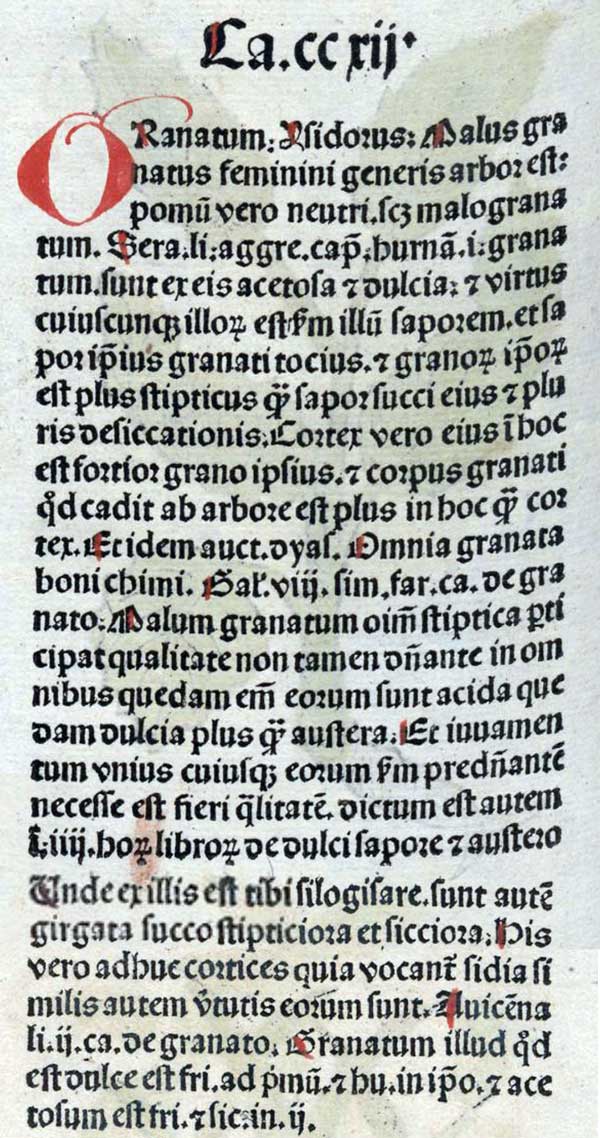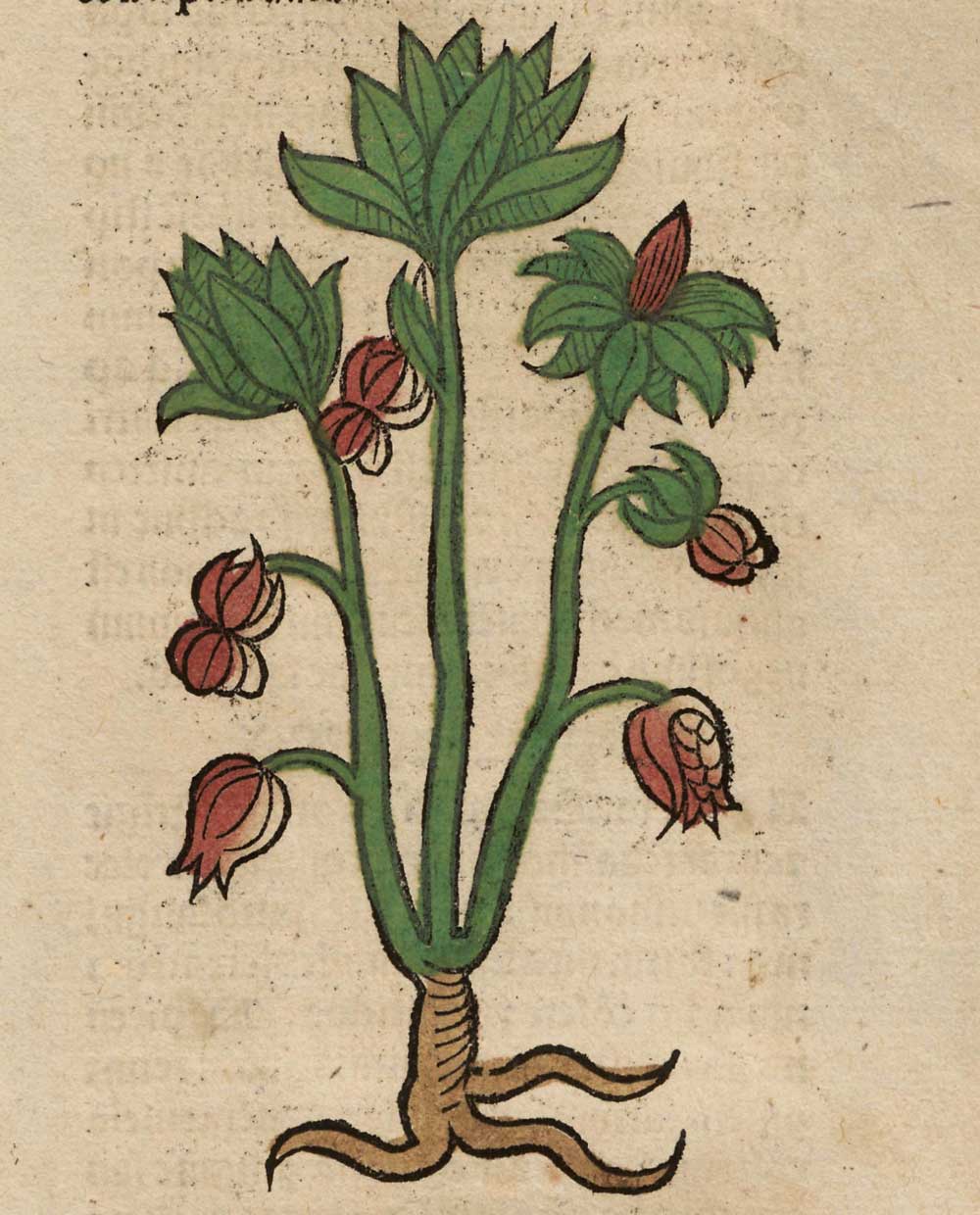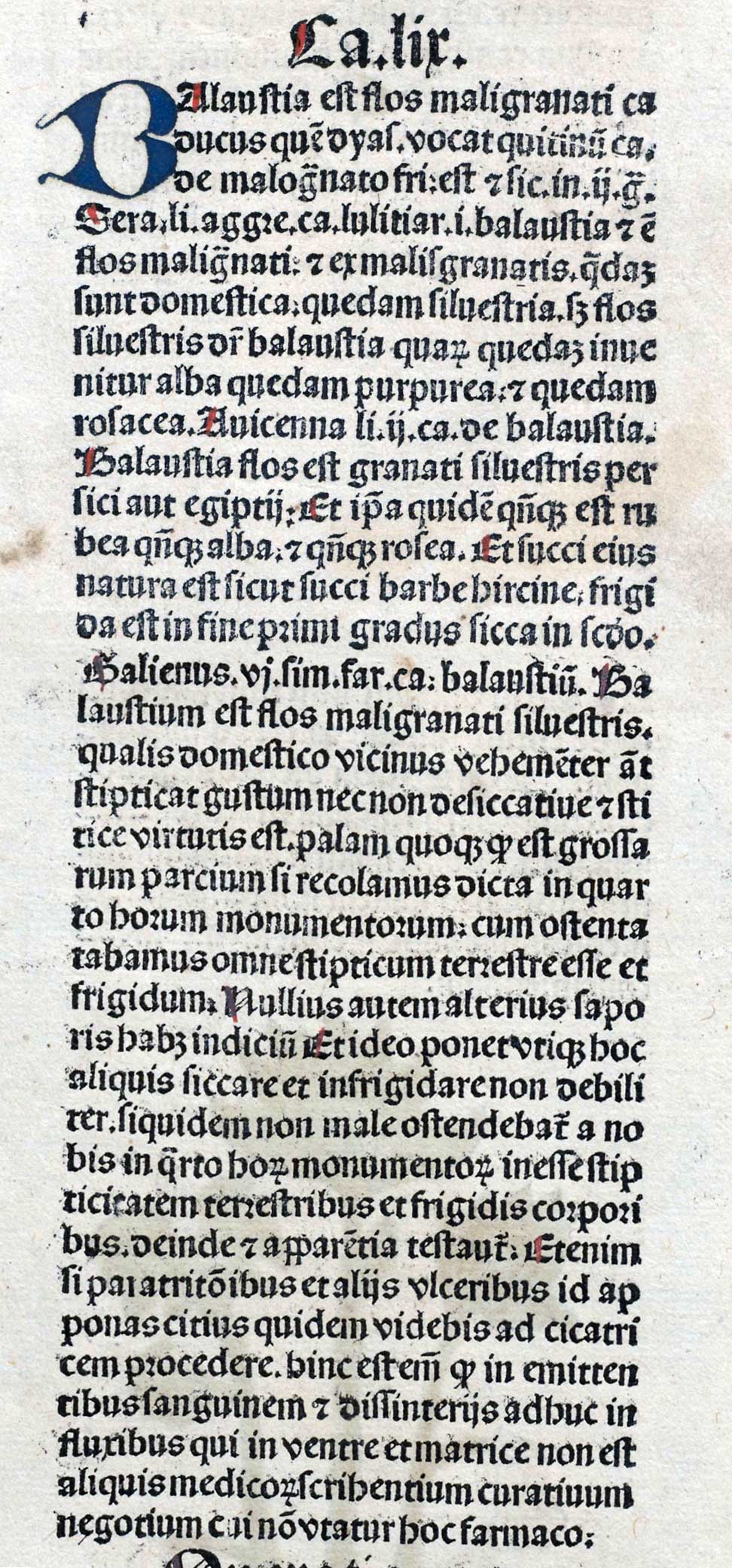Punic apples, which are grenades, carried from Punicie, which is Carthage;
Original French: pommes Punicques, ce ſont Grenades, apportées de Punicie, c’eſt Carthage.
Modern French: pommes Punicques, ce sont Grenades, apportées de Punicie, c’est Carthage.
Among the plants that have retained the names of the regions from which they were formerly transported.
Notes
Granatum
Granatum (text)
Balustia
Balustia (text)
Punica granatum L.
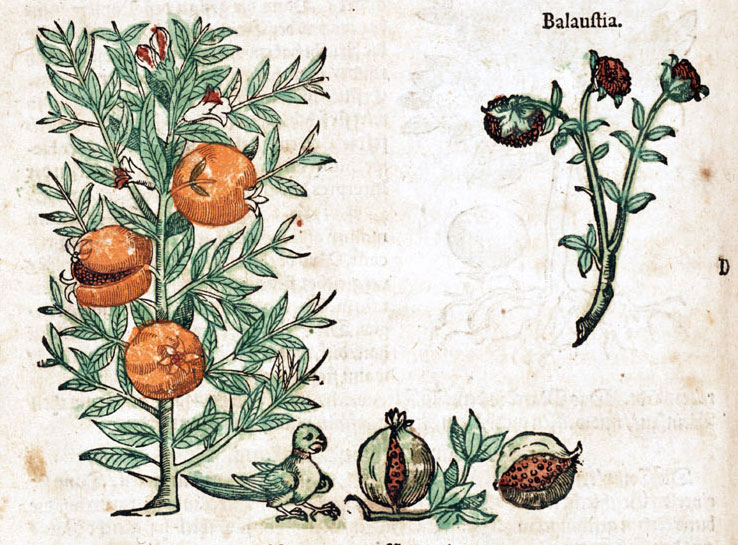
Granatenäpffelbaum
Malus Punica
Punica granatum L.
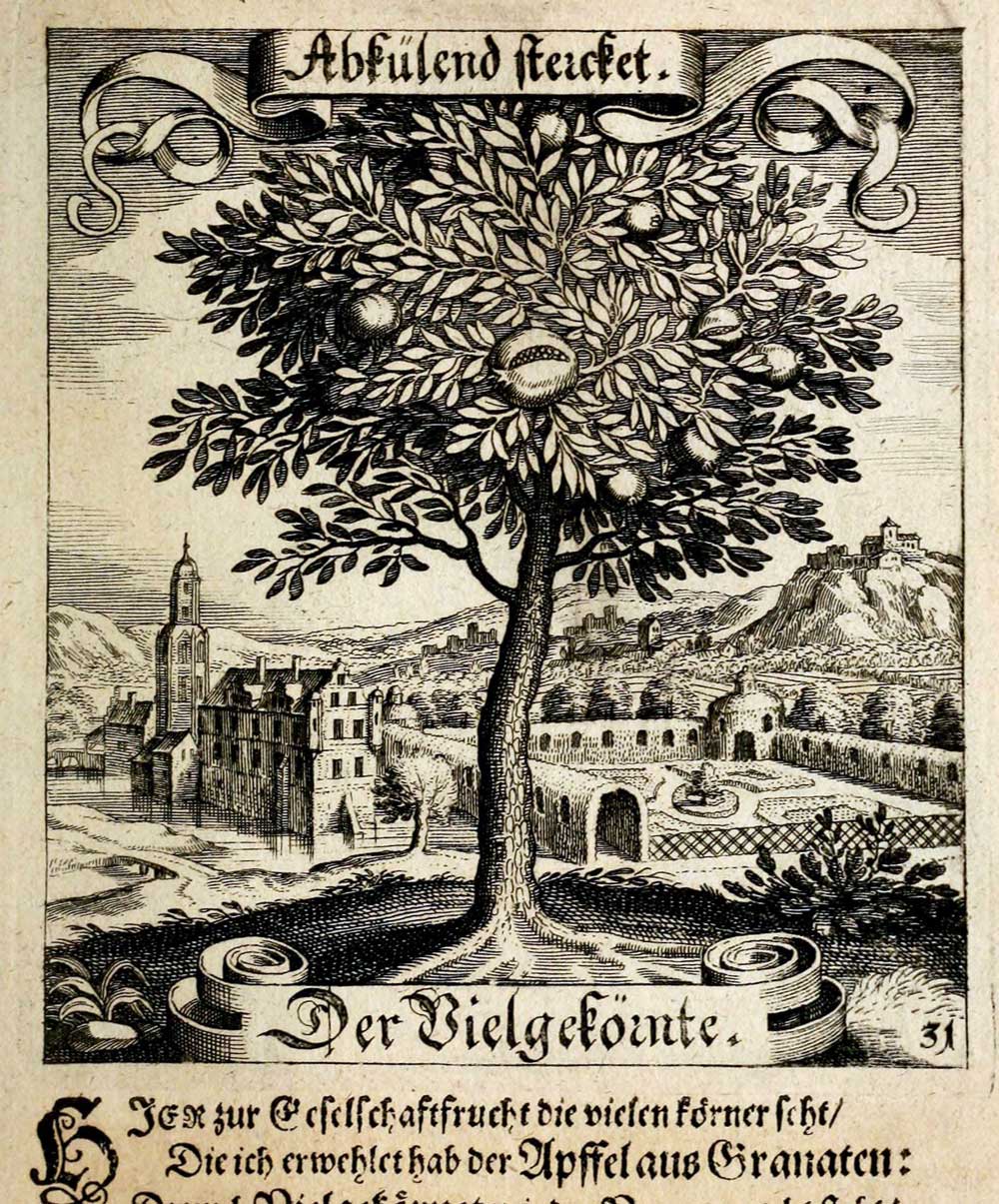
Punica granatum L. [as Apffel aus Granaten]
pomegranate
punica granatum
sed circa Carthaginem Punicum malum cognomine sibi vindicat: aliqui granatum appellant; divisit et in genera apyrenum vocando cui lignosus nucleus abesset: candidior ei natura et blandiores acini minusque amaris distincti membranis; alias structura eorum quaedam ut in favis, communis nucleos habentium. horum quinque species: dulcia, acria, mixta, acida, vinosa; Samia et Aegyptia distinguntur erythrocomis et leucocomis. corticis maior usus ex acerbis ad perficienda coria. flos balaustium vocatur, et medicis idoneus et tinguendis vestibus, quarum color inde nomen accepit.
But the country in the neighbourhood of Carthage claims by the name of Punic apple what some call the pomegranate; this it has also split up into classes, by giving the name of apyrenum [aἈπύρηνον ‘without kernel.’] to the variety that lacks a woody kernel: the consistency of this is whiter than that of the others, and its pips have a more agreeable taste and the membranes enclosing them are not so bitter; but in other respects these apples have a special structure resembling the cells in a honeycomb, which is common to all that have a kernel. Of these there are five kinds, the sweet, the sour, the mixed, the acid and the vinous; those of Samos and of Egypt are divided into the red-leaved and the white-leaved varieties. The skin of the unripe fruit is specially used for dressing leather. The flower is called balaustium, and is serviceable for doctors and also for dyeing cloth; it has given its name to a special colour [puniceus, ‘purple’].
Punick Apples
Pomegranates.
Punic Apples
Pliny xiii. 19, § 34.
grenades
Grenadier, Punica granatum L. (Myrtacée). Selon Pline les meilleures grenades venaient de Carthage (Malum punicum) : « circa Carthaginem punicum malum cognomine sibi vindicat », XIII, 34. Mais de Candolle pense que cet arbre est originaire de Perse, et ne fut qu’importé à Carthage par les Phéniciens. (Paul Delaunay)
grenade
grenade. Forms: granade; grenade. [adopted from French grenade fem., adopted from Spanish granada pomegranate (see garnet).]
A pomegranate. Obsolete
C. 1532 Giles Du Wes An introductorie for to lerne to rede, to pronounce and to speke French trewly 912 Granades, grenades.
(1729) 211 Water young planted Shrubs… as Orange-Trees, Myrtles, Granades.
1654 Whitelocke Jrnl. Swed. Emb. (1772) I. 375 He… sent… a present of citrones, grenades, and curious spanish comfitures.
Punic
Punic. Also -yk, -ik, -ike, -icke, -ique, -icque, -ick. [adaptation of Latin Puicus, earlier Poenicus, formed on Poenus a Carthaginian; formed on Greek foinic Phoenician, Carthaginian; also purple. Cf. French punique (15th century in Littré).]
Belonging to Carthage; Carthaginian. Punic Wars, the three wars between the Romans and Carthaginians waged between 264 and 146 bc.
1533 Bellenden Livy i. viii. (S.T.S.) I. 46 Efter þe end of þe first punyk batall.
1601 Philemon Holland, translator Pliny’s History of the world, commonly called the Natural historie I. 89 Our countreymen name it Tartessos, the Carthaginians Gadir [margin Or Gadiz], which in the Punicke language signifieth the number of seven.
Punic apple (Latin Punicum malum), the pomegranate; so Punic-tree. Obsolete.
1601 Holland, translator Pliny I. 398 The territorie of Carthage challengeth to it selfe the Punicke apple: some call it the Pomegranat.
1641 G. Sandys Paraphr. Song Sol. iv. i, Thy Cheeks like Punicke Apples are.
1745 tr. Columella’s Husb. x. 373 Soon as the punic-tree..Itself shall with its bloody blossoms cloathe.
